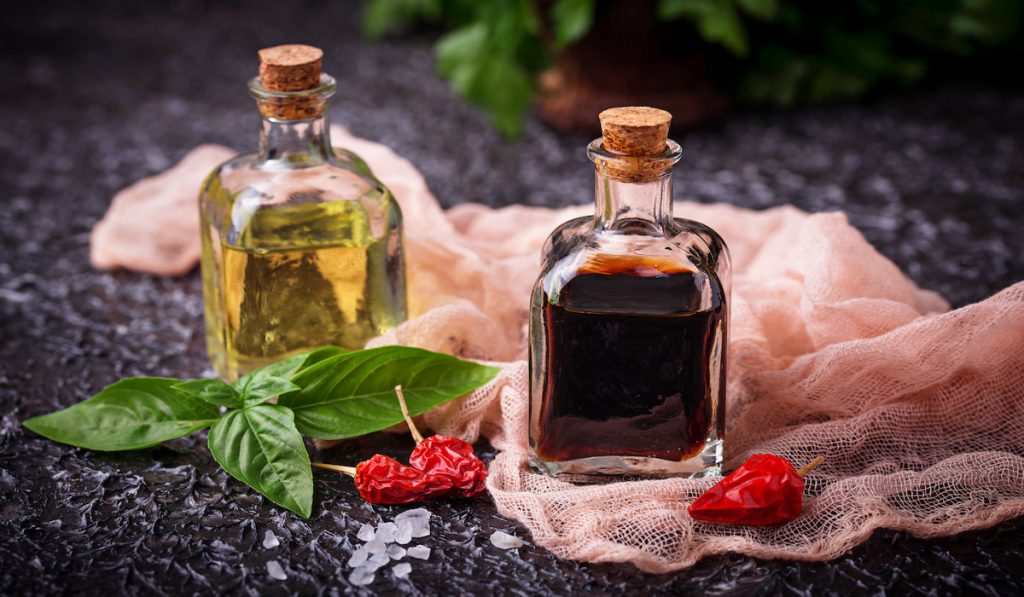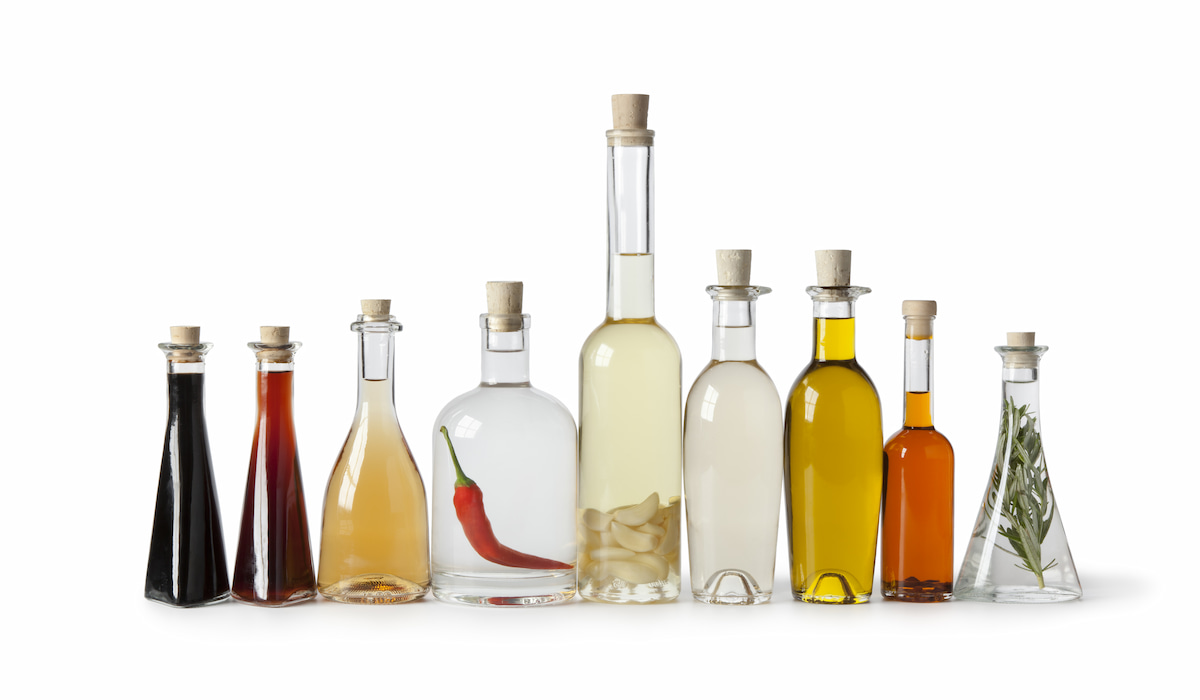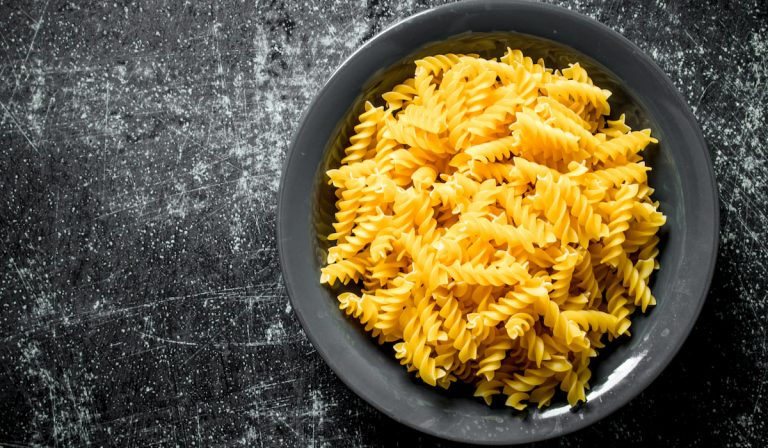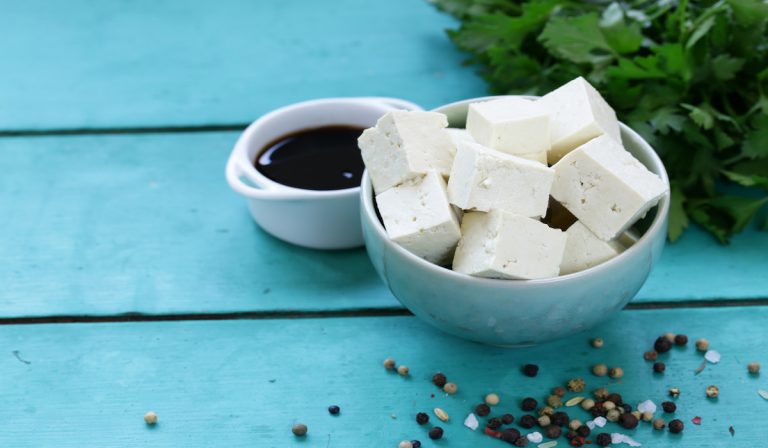Is Vinegar Paleo? (What Makes It Non-Paleo?)
If you’ve scoured the web to know if vinegar is paleo or not, you must have come across some slightly conflicting answers. Thankfully, you are on our page now, and we can provide some clarity to your inquiry.
Is vinegar paleo?
By the strictest definition of paleo, vinegar is not paleo because it was not present in the Paleolithic era.
However, because wine – which wasn’t available in the paleolithic era – is paleo-friendly, some people accept vinegar made from paleo ingredients as paleo.
Below, we further discuss the paleo-friendliness of vinegar. We also go over different types of vinegar and talk about their paleo-friendliness.

Is Vinegar Paleo?
There are controversies over the paleo-friendliness of vinegar. However, the opposing sides of the discussion are both right, in a way.
The first documentation of vinegar was in 3000 BC. So, one can assume that vinegar was not present in the Paleolithic era. Going by the strictest definition of paleo, vinegar is non-paleo because it was not available in the Paleolithic era. However, under specific conditions and for some reasons, some people accept vinegar as paleo-friendly.
The main reason people accept vinegar as paleo-friendly is that it comes from a natural process. Generally, vinegar comes from exposing specific foods to yeast to produce alcohol, then converting the alcohol to acetic acid – the primary ingredient in vinegar – by exposing it to bacteria.
While vinegar comes from a natural process, those who accept it as paleo only do so under specific conditions.
The first condition is that vinegar can only be paleo-friendly if it comes from paleo food items. The second condition is more individualistic – vinegar can only be paleo if it does not harm you. In other words, if you are sensitive to vinegar, then it is not paleo for you.

Types of Vinegar
Now you know that some paleo followers consider some types of vinegar paleo. So, let us discuss the types of vinegar and find out which are paleo-friendly and which aren’t.
White Vinegar
White vinegar is the most common vinegar type. It serves various purposes in the home, from cooking to cleaning and even as first aid.
People made white vinegar by fermenting potatoes, sugar beets, and molasses in the past. However, these days, white vinegar typically comes from fermenting grains. Of course, since grains are not paleo, most of the white vinegar you will find today is not paleo-friendly.
Red Wine Vinegar
Red wine serves various culinary purposes. You may use it as a salad dressing or in sauces and marinades.
Red wine vinegar comes from red wine, and since red wine is paleo-friendly, red wine vinegar is paleo.
White Wine Vinegar
White wine vinegar serves similar purposes as red wine vinegar. It comes from adding bacteria to white wine to produce acetic acid.
Since white wine is paleo-friendly, white wine vinegar is paleo.

Balsamic Vinegar
Balsamic vinegar is of two main types: traditional and Modena. Traditional balsamic vinegar comes from a 12-year-long fermentation of grape juice concentrate. Of course, since grapes are paleo, traditional balsamic vinegar is paleo-friendly.
Conversely, Modena balsamic vinegar comes from wine vinegar, grape must, and caramel color. You may already know that wine vinegar and grape must are paleo. However, caramel color may or may not be paleo, depending on its source.
Apple Cider Vinegar
Apple cider vinegar has medicinal and culinary uses. You can use it in marinades, sauces, and salad dressing. It may also help manage diabetes and help with skincare.
As the name implies, apple cider vinegar comes from fermenting apple or apple juice. Obviously, apples are paleo, so you may consider apple cider vinegar paleo-friendly.
Rice Vinegar
Rice vinegar comes from rice – different types of rice. It serves various culinary purposes, adding a mild, sweet flavor to all kinds of dishes.
Rice vinegar comes from rice, and since rice is not paleo, rice vinegar is not paleo-friendly.
Malt Vinegar
You can use malt vinegar in dressings and for pickling foods. It comes from malted barley. However, since malted barley is not paleo, malt vinegar is not paleo-friendly.
Apart from apple cider vinegar, red wine vinegar, white wine vinegar, and balsamic vinegar, coconut vinegar is another paleo-friendly type of vinegar.

Benefits of Vinegar
It Can Help With Blood Sugar Control
Studies show that vinegar may improve insulin sensitivity and insulin response, reducing elevated blood sugar levels. This is why it offers some medicinal benefits in the management of diabetes.
Besides helping with blood sugar control, vinegar can also prevent fat buildup in the liver.
Vinegar Can Help With Weight Loss
Vinegar is pretty helpful in a weight loss routine. For one, it is low in calories, so having it in your dishes will not hamper your weight loss. But beyond that, vinegar might increase satiety and reduce your cravings. Of course, both of these effects are great for weight loss.
It Might Be Useful in Lowering Blood Cholesterol Levels
Studies in rats suggest that vinegar might help lower cholesterol levels. However, there are no concrete human studies yet. So, this remains a possibility.
Vinegar Has Antimicrobial Activity
Vinegar has considerable activity against bacteria. This is why it once was first-aid material. Nonetheless, the antibacterial activity of vinegar is still of use in food preservation today.
While it isn’t ideal for cleaning wounds, it keeps food items fresh for longer.

Potential Downsides of Vinegar
Enamel Damage
Due to its acidic nature, vinegar can cause the enamel of your teeth to wear off. To avoid this, try not to brush your teeth soon after taking vinegar. Brushing shortly after taking vinegar quickens enamel damage.
Heartburn
If you typically experience heartburn, consuming vinegar might worsen the symptoms.
Final Thoughts
Vinegar is not paleo because it was not part of the diet of the humans of the Paleolithic era. However, since vinegar comes from a natural process, many people consider vinegar made from paleo ingredients to be paleo-friendly.







